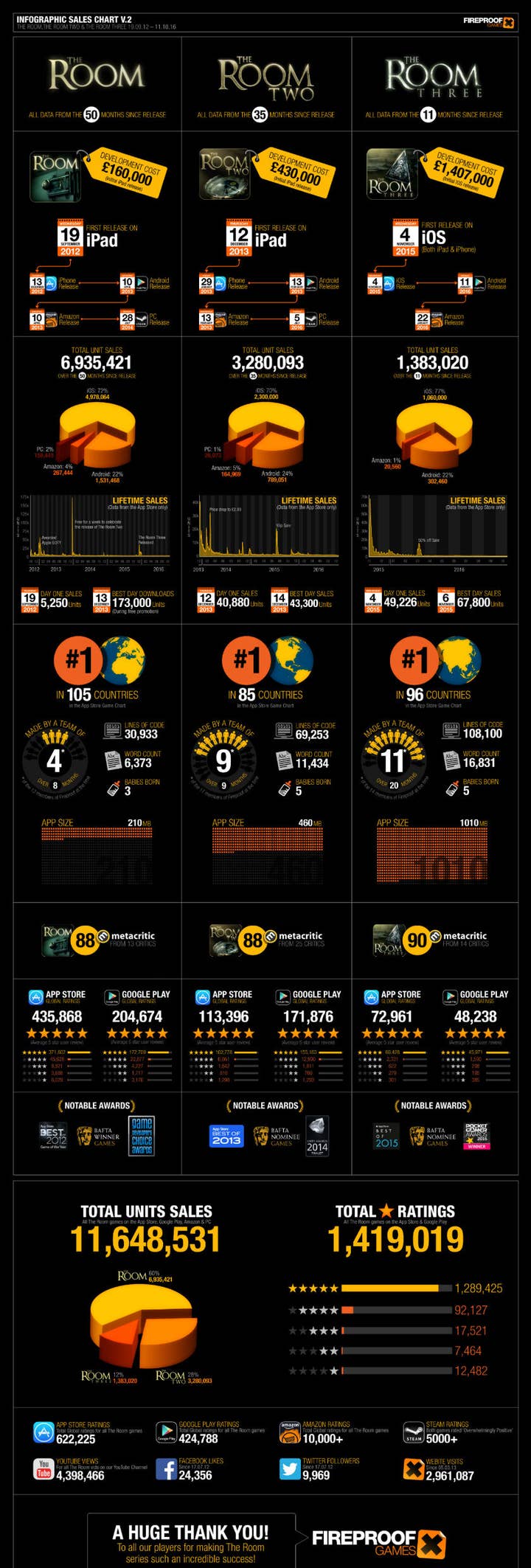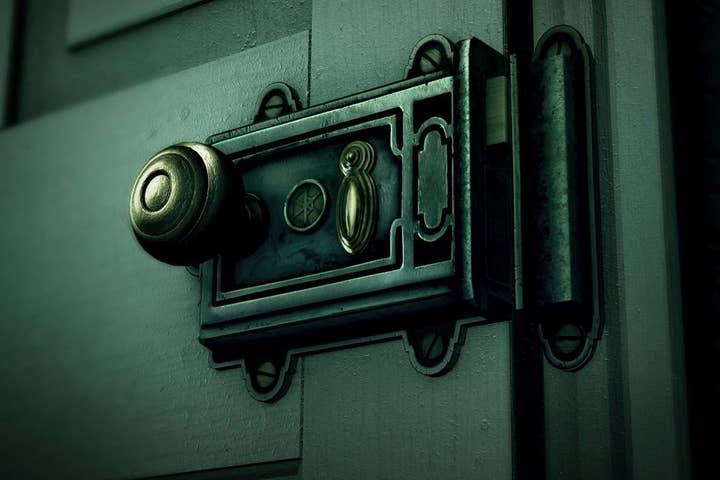The Room franchise has passed 11.5 million sales
Fireproof Games reflects on one of mobile's few premium success stories
Fireproof Games' The Room series has sold more than 11.6 million units, including all three games on mobile and PC.
The first game was released for iPad in September 2012. It was launched on the Google and Amazon app stores within a year, and it reached Steam in July 2014. The Room is comfortably the most successful game in the series with more than 6.9 million units sold, and that is only reinforced by the £160,000 development cost of the iPad version.
All of this data is drawn from an infographic released by Fireproof Games, which is packed with detail and insight on the series' performance over time. One striking detail is the escalation in the production budget for the initial versions of each game, with that £160,000 rising to £430,000 for The Room 2 and £1.4 million for The Room 3. Despite this, neither of the sequels quite matched the popularity of the original, in terms of average units sold per month.
"In a market as huge as mobile how the fuck are Fireproof among the only makers of premium games that saw this kind of success?"
Barry Meade, Fireproof Games
The Room is one of a relatively small group of premium games to build lasting success on mobile platforms; a relatively small group that hasn't grown very much as the years have passed. Barry Meade, Fireproof's co-founder and director, has frequently lamented the dominance of free-to-play games on mobile, asking all the way back in 2014: "In a market as huge as mobile how the fuck are Fireproof among the only makers of premium games that saw this kind of success?"
Meade cited data indicating low levels of engagement and a very small proportion of paying customers as evidence that, in most free-to-play games, the amount of revenue earned isn't indicative of happy gamers. "This is a statistically insignificant amount of happy gamers and nothing that gives you a basis to make claims about 'what people want'. I think it just as likely that mobile's orgy of casual titles is due to simple bandwagon-ism or, in other words, not knowing what people want."
In a subsequent article written exclusively for GamesIndustry.biz, Meade explained a, "difference in mindset between making a F2P casual game and a premium game [that] is more stark than our industry lets on."
"Making a F2P casual game generally does not - unless you are Supercell - involve learning how to execute on a unique vision nobody has seen before," he said. "Premium, on the other hand, broadly is about that; it has simpler goals but wider visions - and therefore the discussion around paid games cannot constantly reference the free market and the tricks employed by all the biggest casual games out there. And to confuse the audiences, to assume that people who play casual games for free, for nothing, will somehow magically be interested in paying for premium games is a further form of suicide. Cater for that, sure, but don't plan business around it."
Fireproof's infographic is republished below.


